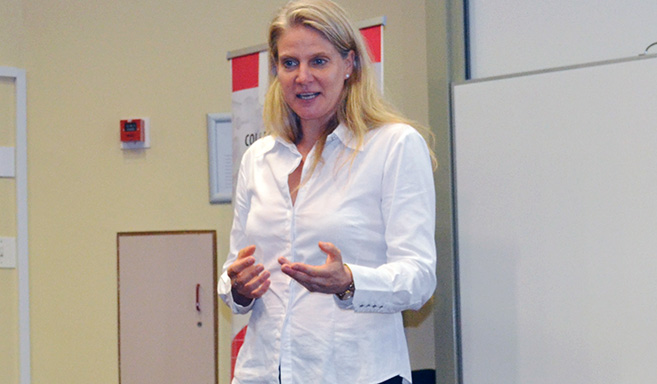The 3rd of December marks the International Day of Persons with Disabilities. People with disabilities are part of a highly marginalized group, who make up to at least 15% of the world’s population.
Growing evidence shows that people with disabilities are more likely to experience health inequalities, have poorer health outcomes including sexual and reproductive health and are more likely to be exposed to violence. In addition, people with disabilities have the same sexual and reproductive health needs and rights as people without disabilities yet face numerous barriers to access Sexual and Reproductive Health and Rights (SRHR) services and education and therefore cannot enjoy their SRHR on an equal basis with others.
As South Africa observes the 16 Days of Activism Against Gender-based Violence (GBV) and Violence against Children (VAC), the Gender and Health Research Unit (GHRU) recognizes the contribution of Senior Specialist Scientist Prof Jill Hanass Hancock in her work towards upholding the rights of young girls and women with disabilities. Her leadership in several projects such as GHRU’s the ‘Breaking the Silence” Forgotten Agenda and ALIGHT studies have increased our understanding of the SRHR needs of young people and women with disabilities. They also paved the way towards developing inclusive research design and interventions that increase access to comprehensive sexual and reproductive health and rights for persons with disabilities.
In commemorating the International Day of Persons with Disabilities, Prof Hanass-Hancock has been recognized by Expertscape as an expert researcher in the field of disabled persons, with their PubMed-based algorithms, placing her in the top 1% of scholars writing about disabled persons over the past 10 years - a level deemed as "Expert."
Prof Hanass Hancock has this to say “It is wonderful to see that disability research is being acknowledged internationally at such a crucial time. The experiences and needs of people with disabilities are often not at the forefront and rather second thought. We need more inclusive research and programme development that can change this. The current COVID-pandemic has highlighted the inequality between those with and without disabilities again.” She added that the pre-pandemic inequalities deepened and the needs of people with disabilities were only an afterthought. “Under crisis conditions the SRHR needs of women with disabilities have become a forgotten agenda as we are dealing here with several levels of marginalization: COVID and its inequality in responses, disability and gender” added Hanass Hancock.
Over the last 20 years, the GHRU has been conducting high quality scientific research which informs policy, impacts healthcare services and aims to improve the health status and quality of life of women. Its main interest is the prevention of gender-based violence and its impact on the lives and health of women. Throughout the COVID-19 pandemic, the unit has continued conducting research that includes, amongst others: the impact of lockdown on GBV and GBV in institutions of higher learning.
Recently, the team hosted ‘The Forgotten Agenda Project” webinar to discuss inclusive research approaches during the COVID-19 pandemic. The project itself focuses on the sexual reproductive health and rights of young women with and without disabilities, during the COVID-19 pandemic. Furthermore, the Units “Breaking the Silence” approach to comprehensive sexuality education has been identified by UNESCO as a best practice to reach young people with disabilities and the findings of this study have just been released on the project’s website.
The GHRU has also assisted the Solidarity Fund to develop its GBV strategy that saw community-based organisations (CBOs) in the country receiving about R75 million to address prevention, response and access to justice in early 2021.

